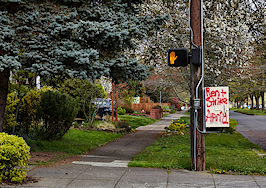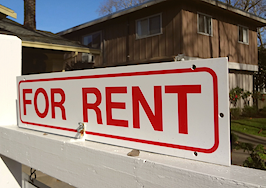An attempt at helping low-income renters by capping the growth in the price of rent may have had the opposite effect, according to a new study.
According to a study conducted by researchers at the University of Southern California, rent control caused all property values to fall by 6-7 percent in St. Paul, Minnesota. For rental properties, the drop was 12 percent, according to a corresponding report called “Robbing Peter to Pay Paul? The Redistribution of Wealth Caused by Rent Control.”
St. Paul was a leader among a growing list of cities seeking to intervene and help renters amid rapidly rising rents. Rental properties are subject to a maximum rent increase of 3 percent annually under the voter-approved rent-control ordinance.
“To the extent that rent control is intended to transfer wealth from high-income to low-income households, the realized impact of the law was the opposite of its intention,” the researchers wrote.
Among the study’s top findings:
- Tenants who gained the most from rent control had higher incomes and were more likely to be white.
- The owners who lost the most had lower incomes and were more likely to be minorities.
- For properties with high-income owners and low-income tenants, the transfer of wealth was close to zero.
- The policy could drop property tax revenue by 4 percent, which “is likely to lead to tax increases to maintain city services.”
Voters passed the new ordinance in November. The researchers said that created an ideal setting for studying the impacts because there was little anticipation of the law and because the ordinance is simple and “extreme.”
Rental growth is capped at 3 percent for every 12 months whether or not there is a turnover in vacancy, and all residential properties are covered by the law with few exceptions.
“We find that rental properties in St. Paul experienced an additional 6 percent decline in value compared to owner-occupied properties in St. Paul, for a total loss of about 12 percent,” the researchers wrote. “These results imply that the value loss is caused by rent control rather than a spurious variable that affected rentals and non-rentals equally.”
The ordinance is only the latest effort in the Midwestern city to slow the price growth on rentals in St. Paul, where half of all residents are renters and a quarter are rent-burdened, according to the city.
The study also follows threats by developers who said they were pausing a third of the units planned for construction in the city before rent control was passed, according to The Wall Street Journal.
Rent rose 11 percent nationwide in 2021. Rent has risen even faster during the beginning of 2022, at 13.6 percent for single-family homes.
California and Oregon have enacted statewide rent-control laws. Legislators are hoping to overturn bans in Florida. Members of Congress have floated the concept at a national level. And property owners across the country have fought against efforts.
Oregon’s rent-control law restricts rent hikes to the consumer price index plus no more than 7 percent. The CPI has been rising at a rate faster than any point over the past 40 years. Prices rose 7 percent in 2021, meaning rent in Oregon could be increased by no more than 14 percent.













